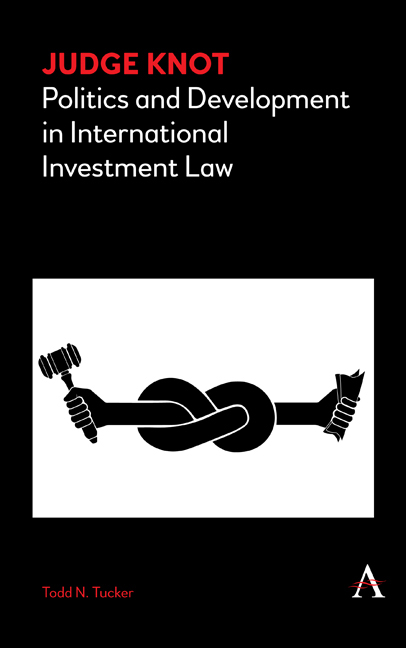Book contents
- Frontmatter
- Dedication
- Contents
- List of Illustrations
- Acknowledgments
- Introduction
- Chapter One Entering the Judge Knot
- Chapter Two Historicizing Investment Law
- Chapter Three Why Investors Demand Investment Law
- Chapter Four Why Arbitrators Supply Investment Law
- Chapter Five Why Investment Law Lasts
- Chapter Six Toward Global Popular Constitutionalism
- Appendix Methodology
- Index
Chapter Five - Why Investment Law Lasts
Published online by Cambridge University Press: 21 June 2018
- Frontmatter
- Dedication
- Contents
- List of Illustrations
- Acknowledgments
- Introduction
- Chapter One Entering the Judge Knot
- Chapter Two Historicizing Investment Law
- Chapter Three Why Investors Demand Investment Law
- Chapter Four Why Arbitrators Supply Investment Law
- Chapter Five Why Investment Law Lasts
- Chapter Six Toward Global Popular Constitutionalism
- Appendix Methodology
- Index
Summary
Judicial empowerment through constitutionalization is best understood as the product of a strategic interplay between three key groups: threatened political elites, who seek to preserve or enhance their political hegemony by insulating policy making in general, and their policy preferences in particular, from the vicissitudes of democratic politics while they profess support for democracy; economic elites, who view the constitutionalization of rights, especially property, mobility, and occupational rights, as a means for placing boundaries on government action and promoting a free market, business- friendly agenda; and judicial elites and national high courts, which seek to enhance their political influence and international reputation.
—Ran Hirschl, Towards Juristocracy (Hirschl 2004, 12)In the last two chapters, we have focused on the world inside arbitration. In the next two, we zoom our lens outward to put it in a political context.
How has the world responded to investment- treaty arbitration and arbitration to the world? More than twenty years ago, sociology- and- law scholars Yves Dezalay and Bryant Garth (1996) had a prediction. Their book was the first major study of international arbitrators. At that time, arbitration was mostly an inter- corporate affair. A typical case might involve a London insurance company that insured a Massachusetts shipper but failed to pay out on the policy. Instead of going to a court in the United Kingdom or the United States (where one party might have a home- country advantage), the two companies could opt for private arbitration in a chamber of commerce. To the extent the story involved the public sector, it was limited to the strategies the arbitration community used to get national courts to agree to help enforce the awards. Nonetheless, with the 1995 publication of the University of Miami's Jan Paulsson's famous article celebrating the first investment- treaty case (AAPL v. Sri Lanka, discussed in chapter 2), there were hints that states might soon be more directly embroiled in arbitrations. Dezalay and Garth wondered whether this meeting of private and public actors might push arbitration in a more social democratic and green direction (Dezalay and Garth 1996, 312).
- Type
- Chapter
- Information
- Judge KnotPolitics and Development in International Investment Law, pp. 123 - 156Publisher: Anthem PressPrint publication year: 2018



